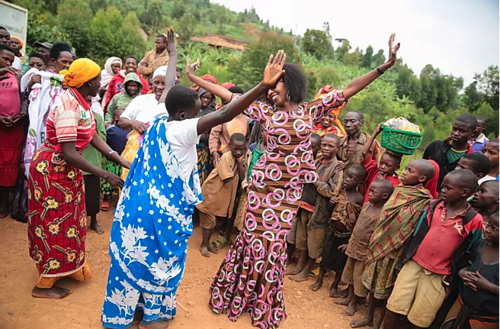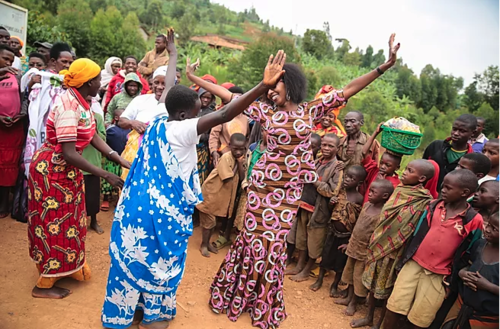
For a nation which culturally prefers tea, Burundi has made a name for itself in the specialty coffee world.
Located in Central Africa, Burundi is a small landlocked country, and one of the poorest in the world. According to the World Bank, the average GDP per capita in Africa was $14,923, in Burundi, it is $293. 80% of the population lives in poverty, one of the highest rates in the world.
Coffee was brought to Burundi from the Belgian colonists in the 1930s; in the last few years, it has grown to be the nation’s largest export. Over 90% of the population is employed by the agriculture industry. Located on the equator in the northern part of the tiny country, the Ngozi Province’s mountainous region is conducive to dynamic and bright coffee. Grown at heights of 1,200 to 1,950 meters above sea-level, Burundi beans create a phenomenal cup of coffee.
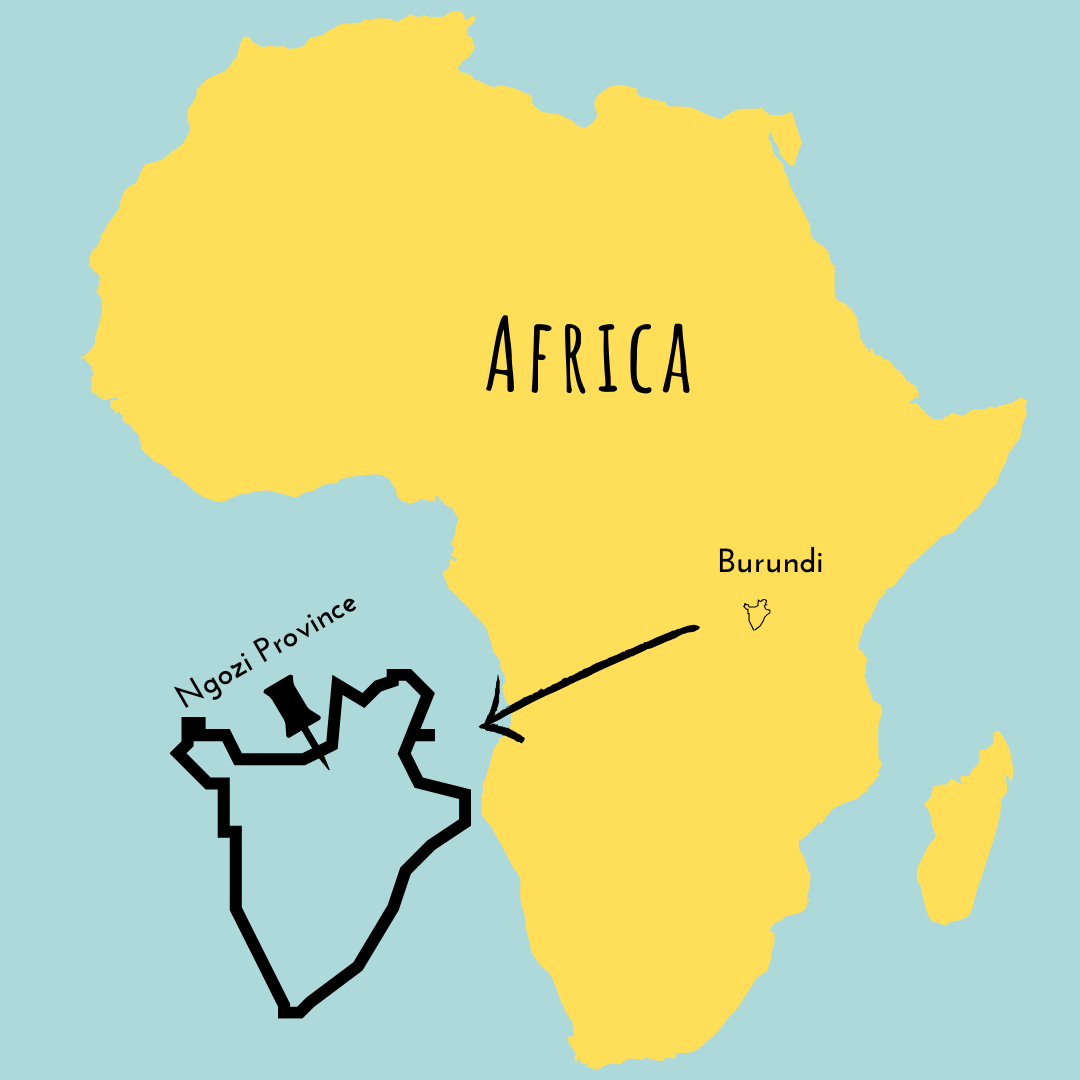
Jeanine Niyonzima-Aroian, the founder of JNP Coffee, is working to change that reality. Originally from Burundi, Jeanine operates JNP coffee from Massachusetts, but makes regular trips to Burundi. Her mother’s family owned a coffee farm in Burundi, allowing her mother to go to school. Through such a strong personal connection to coffee and the opportunities the export can create for Burundians, Jeanine named the coffee product “Bavyeyi.” In the native Kirundi language, “bavyeyi” means “family.” In reference to her own family history, Jeanine works to ensure that the women who grow and cultivate the coffee receive equitable payment.
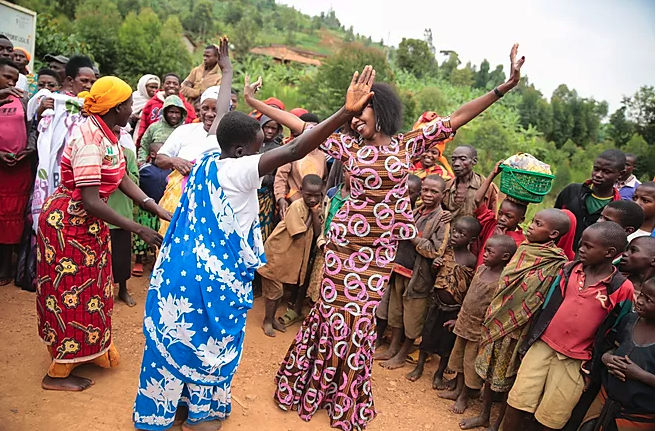
The success of Jeanine’s initiatives for the women in Burundi is a dream come true for her and her partners.. When Jeanine visits women growers, they always take time to dance together in celebration.
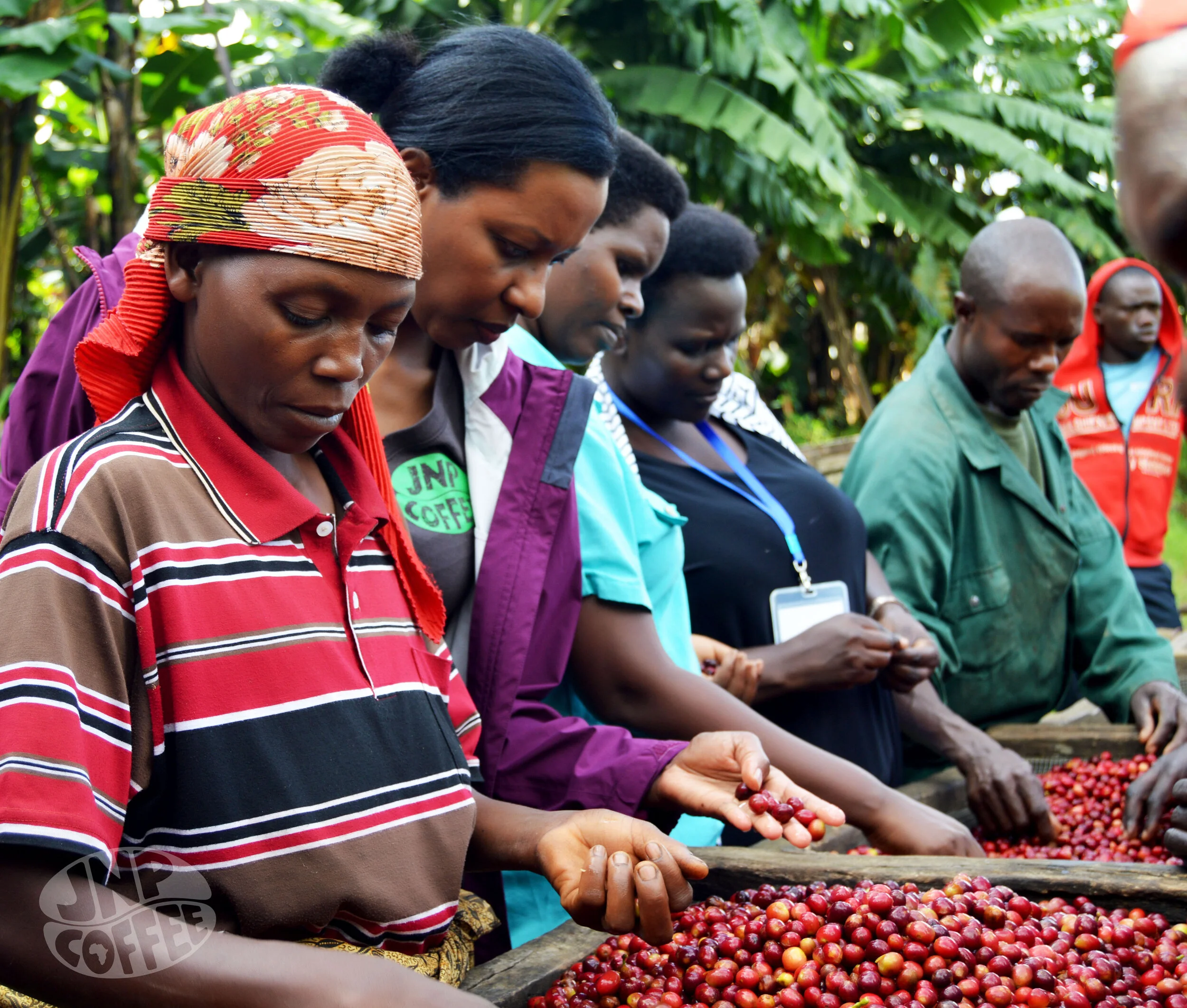
Jeanine and women growers sort through and select the ripest beans for drying

A country with a long history of political instability, violence, and poverty, Burundi continues to be a place where women are fighting for rights to own land.

Sorting through the cherries after they have been naturally sun-dried before they will be depulped and sold as green beans to roasters.
Jeanine has also partnered with numerous organizations and founded initiatives aimed at educating women and overcoming societal stigmas against female education. In Burundi, women cannot own property. In the current coffee market structure, women cannot directly receive payment for their work.
JNP Coffee sources the majority of her coffee from women who are members of the Burundi Chapter of the International Women’s Coffee Alliance (IWCA). The IWCA aims to support and empower women in the coffee industry. Formed in 2003, there are currently 25 operational chapter countries. From Mexico to Vietnam, the IWCA seeks to provide women the opportunity to lead prosperous and sustainable lives.
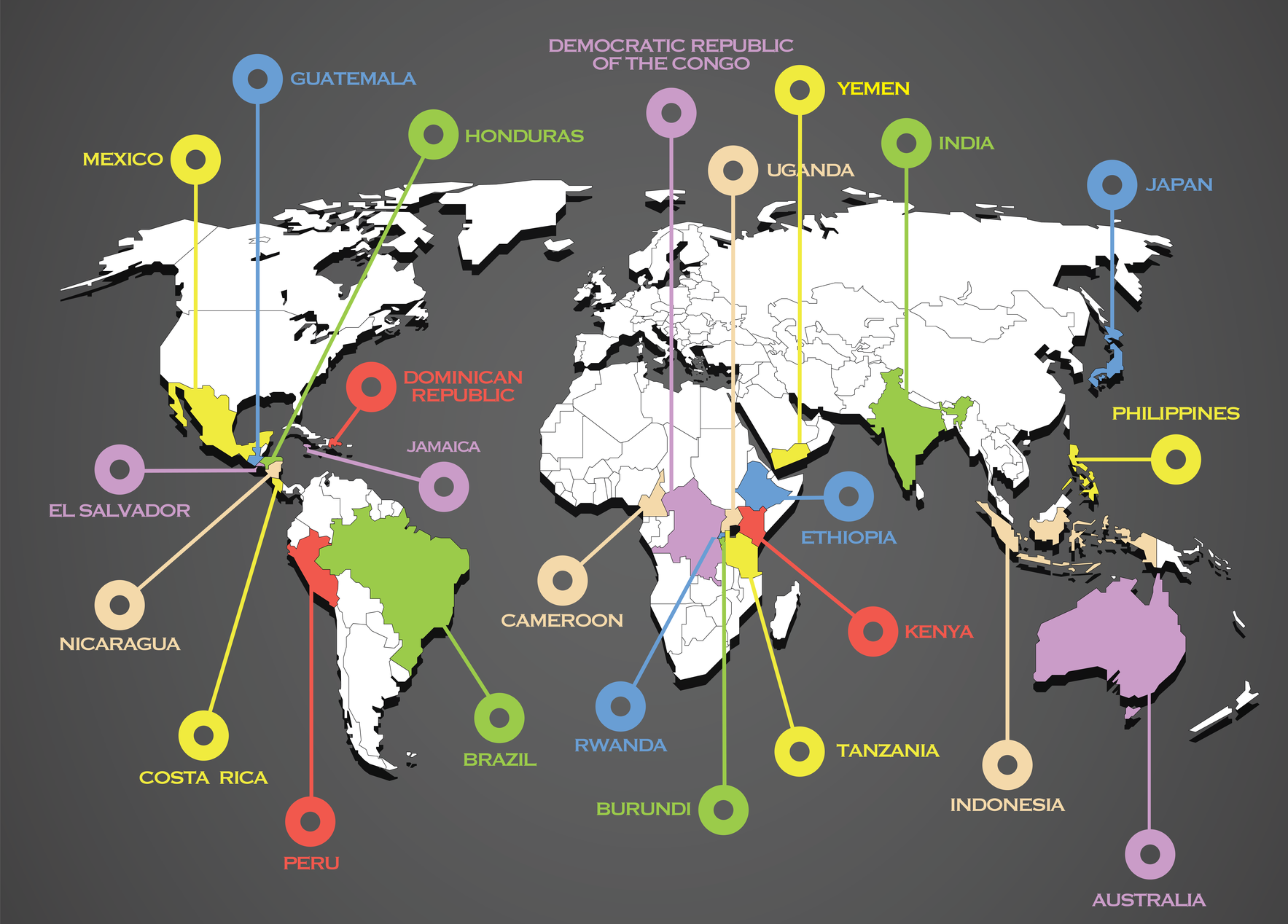
Through sourcing its coffee through the IWCA, JNP Coffee provides payment and premiums directly to the women farmers. In the Burundi chapter, there are over 600 women growers who benefit from a direct premium payment system. On average, women reinvest 90% of their income back into their families and community. While the laws surrounding female ownership of land are in the reformation process in Burundi, the partnership with the IWCA ensures that women receive the payment they deserve, today.
We met Jeanine a few summers ago, when she and her family came into the Brewster cafe while on vacation here on Cape Cod. After just a few minutes of chatting, we realized this was someone who knew more about coffee than we did; we were immediately impressed by her women empowerment initiatives at source. She left us samples, and the rest is history. Nowadays, Jeanine is a very well-known name, and has elevated Burundi to coveted status of excellence in the world of specialty coffee. Big roaster names, such as Blue Bottle and Intelligentsia, would scoop up all of her green beans if she let them. She doesn’t; she cares about the small companies like ours and reserves enough beans Snowy Owl Coffee to share with our supportive customers. For that we are more than grateful.
Through the partnership with JNP Coffee, all Burundi coffee at Snowy Owl is grown on small production lots without genetic modification. Washed in fresh mineral-rich spring water and prepared and processed in the same day, the Bavyeyi bean is natural, fresh, and organic.


